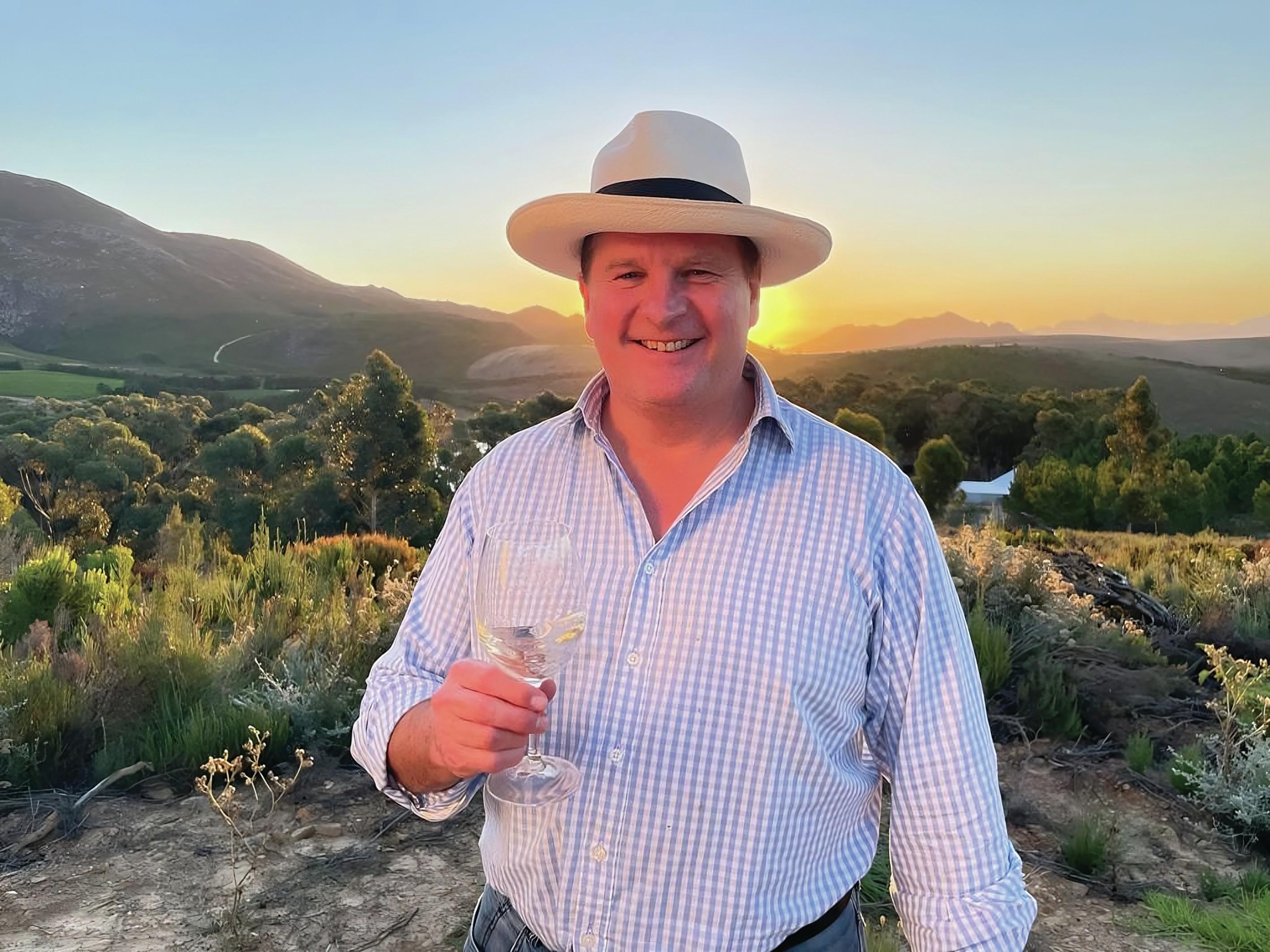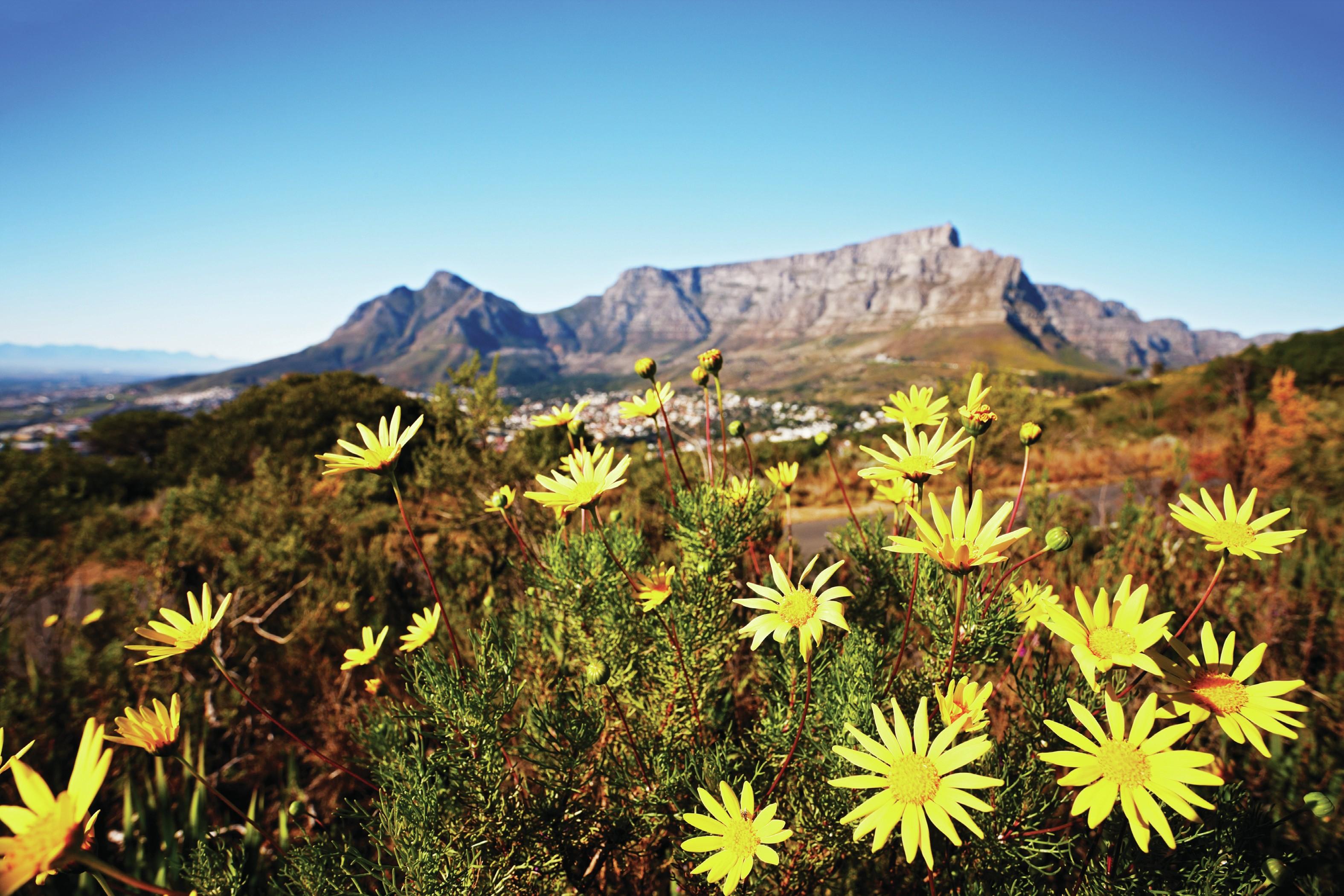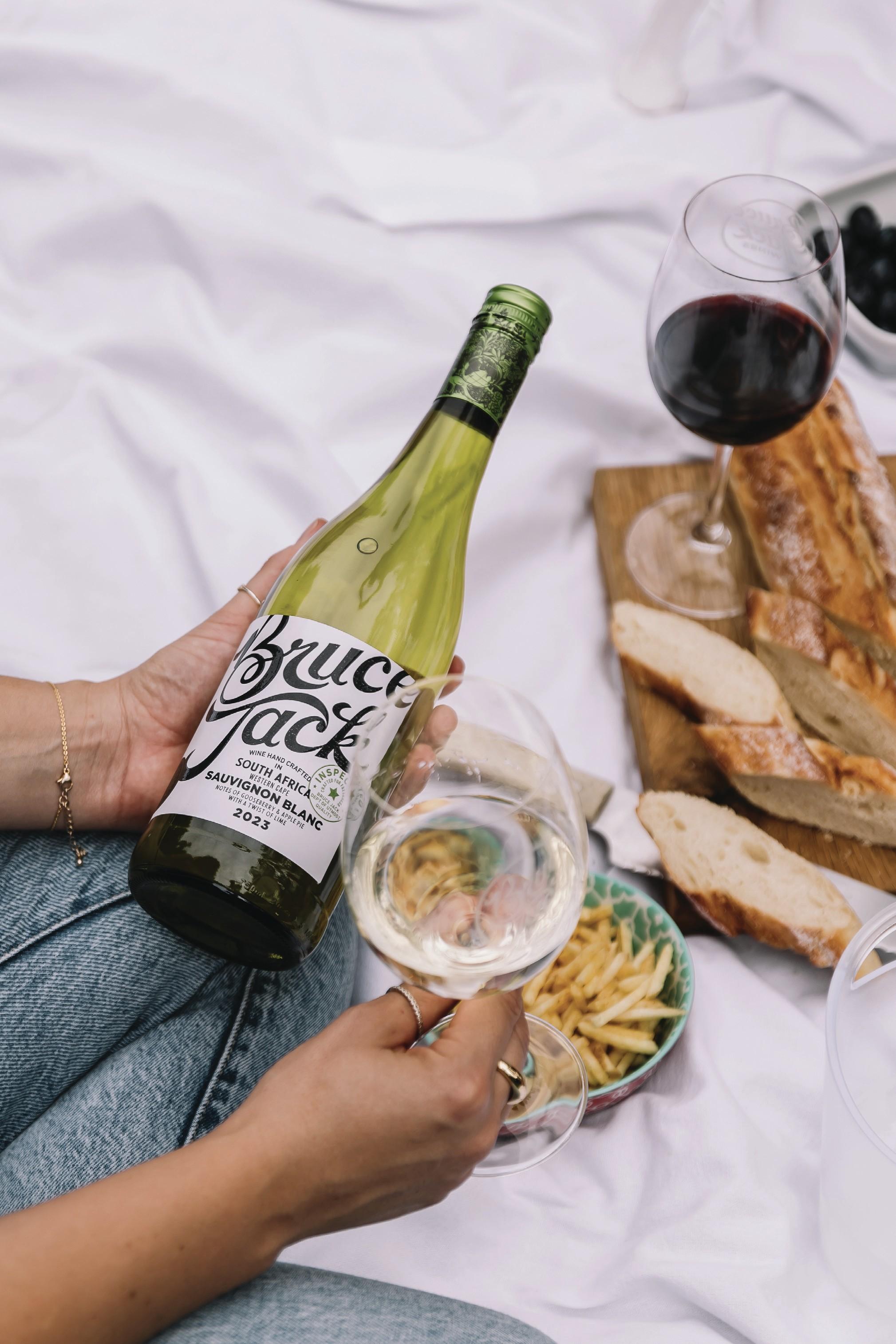This website uses cookies so that we can provide you with the best user experience possible. Cookie information is stored in your browser and performs functions such as recognising you when you return to our website and helping our team to understand which sections of the website you find most interesting and useful.
The Big Interview: Bruce Jack
One of the most charismatic figures in South African wine, Bruce Jack talks premium Pinotage, a potential Accolade/Australian Vintage merger and the upcoming political election with Sarah Neish.

AT THE end of this month, 28 million South Africans on the electoral register are due to cast their votes for who will govern their country for the next five years. It could well be a watershed moment for the country’s wine industry, which has clung on like limpets to a shipwreck at the hands of current governing party the ANC for the last 30 years.
In particular, three years of electricity blackouts across the country, caused by chronic underinvestment, have thrown a spanner in the works for winemakers, who rely on energy to irrigate vines, power their equipment and run their wineries. The sporadic power supply resulted in a 14.2% drop in yield for South Africa’s 2023 harvest.
“The infrastructure has crumbled,” Siobhan Thompson, CEO, Wines of South Africa, told the drinks business in March.
However, on 29 May South Africans will get to have their say at the ballot box.
“I don’t think there will be a change of power,” says Bruce Jack, one of the nation’s most prominent winemakers, producing expressions from Swartland, Robertson, Breedekloof Valley and the Western Cape, among other regions.
“I think that’s very unlikely. The ANC will lose votes, but retain power. But what’s exciting and invigorating is not the past, but how you build up from that.”
The beauty of Bruce Jack is that he doesn’t hide behind the skirts of a PR, dance around questions or change the subject so fast that you end up with acute whiplash. Well-known in the trade for saying it exactly how it is, the business he has built is just as directional as its founder.
“We believe in having fun, but we also believe in standing up for the underdog and doing the right thing,” reads a mission statement on the Bruce Jack Wines website. In the current political landscape, South Africa’s wine industry might just be that underdog.
“Recently, the ruling ANC has not supported the wine industry,” Jack says. “Generally speaking, the South African wine business is white, male and Afrikaans-dominated – everything the ANC hates.”
Yet despite this, Jack insists that the wine industry is the “shining star in a black hole.”
“It’s the biggest creator of jobs and the third-biggest contributor to South Africa’s GDP,” he says. “We’re essential to the country’s economy”.
According to Jack, things are likely to get worse in South Africa before they get any better.
“We haven’t bottomed out yet,” he tells db.
However, the wine trade has been “inured to the chaos for so long” that producers are unlikely to be fazed, whichever way the needle swings in the election. Jack’s verbal shrug in response to the increasingly frequent blackouts – “they’re just another tax” – is a good example of that tenacity.
“The blackouts mean that you have to buy and burn diesel to keep things running, so you’re paying more than you should,” he explains. “We’ve kept on producing wine; it just costs more and eats into your gross profits because it’s not a cost you can pass on to consumers.”
Jack describes the plight of selling wine as similar to that of musical artists flogging their records in a time before TikTok and Spotify belched out trends like a rampant bullfrog.
“If you imagine going into a Virgin Megastore in the 1990s, all the CDs were the same size, all displayed in their different sections – jazz, pop, rock, etc. The wine trade is similar,” he says. “We all sell the same-sized product and have the same amount of space on a bottle label to sell the story of that wine.”

Strength to strength
Bruce Jack Wines was born in 2018 after Jack had already steered the winemaking ship for top brands, including Kumala on behalf of Constellation Brands South Africa, which became Accolade following the acquisition of an 80% share in the company by Australian equity group Champ in 2011.
Now with four wine ranges hitting all price points, including Bruce Jack Lifestyle, Bruce Jack Reserve, Bruce Jack Heritage and The Drift Estate, not to mention a newly-opened rooftop bar called Jack@Skye in one of Cape Town’s hottest locations, the business is going from strength to strength.
The Drift Estate Ghost in the Machine Cabernet Franc (£17.99) recently bagged a Master medal in this year’s Global Cabernet Franc Masters competition, for its concentrated bramble, Christmas pudding and raspberry fruit flavours.
A few years ago, Jack also established a presence in South America, with the first Bruce Jack Chile wines blended and bottled in 2019. The idea was to offer “an alternative origin for markets that are perhaps not as appreciative of South African wine”, he says.
“Why fight to get into a market like China when the Chilean government has made a plan to negotiate better import tariffs, while the SA government has no interest in doing a similar job?” he asks.
Jack also admits he was tempted by the promise of making high-quality wine at what he calls “remarkably low cost”.
“Chile is the only country in the world where you can make entry-level Pinot,” he says. “It’s essential to have even bud break and ripening with Pinot, and there is a very small window of opportunity for that to happen. If the grapes are overripe, you end up with wines that are soupy or jammy. If the grapes are underripe, the wines can be a bit green and stalky.”
Does he prefer Bruce Jack’s South African or Chilean Pinot Noir? “I prefer the gross profits of my Chilean Pinot,” he says with a glint in his eye.
Explaining his love for South African staple Pinotage (a crossing of Cinsault and Pinot Noir), Jack draws an unlikely parallel with Burgundy: “We love red Burgundy because one in 20 bottles will change your life, while most are underwhelming,” he says.
“It’s that one sublime bottle that keeps you searching through the disappointing sips. Pinotage is the same thing from this perspective. When it’s great, Pinotage can change your life.”
He believes that the future of South African wine lies in producers making more complex wines at a higher price. Take Bruce Jack Wines’ There Are Still Mysteries Pinot Noir, for example, which retails in the UK via Hedonism for £68. It takes a certain mettle to place your wines in this price tier, but more producers are beginning to find that self-belief. Why? The South African wine boat, says Jack, “is being rowed more and more by South Africans. We’re taking our own industry into our own hands”.
He highlights the fact that DGB, one of South Africa’s largest independent wine producers, has now set up offices in Europe and the US, as evidence of this.

Dingo dollar
Having worked as group winemaker for Australian wine giant Accolade, focusing on the Hardy’s brand from 2016 to 2018, Jack is well-placed to offer a perspective on the persistent whispers surrounding a possible merger between Accolade and Australian Vintage.
“I would also be doing everything possible to save Hardy’s, because that’s the main asset to sell,” he says. “The brand commands shelf space in key markets, and that’s where the value lies. It has survived people who have not necessarily been committed to the wine industry, and it’s still firing because it’s such a great, strong brand that, despite having had different owners with different agendas over the years, it’s still a force to be reckoned with.”
The drinks world is eager to watch the saga play out because “people love to see a car-crash”, he says wryly.
“For many people there’s nothing better than a captain of industry losing it all. But if [a possible merger] brings solidity and stability to growers in Australia, which I believe it will do, then it has to be a good thing. I’m very fond of Australia; I made my first vintages there, and I also love that it has 24-hour electricity!”
When we speak, Jack has just concluded what he describes as “a very cool deal” which will see an increase in production at the Black Oystercatcher winery in Elim, which will enable “arguably the best Sauvignon Blanc producer in South Africa” to start exporting for the first time.
He is also busy arranging for a handful of exciting new varieties to be imported into South Africa, including “the beguiling and mysterious Antão Vaz from Alentejo”.
Not one to put his feet up, Jack has additionally partnered with the US arm of Rioja’s Bodegas Manzanos on “an ambitious import and distribution business”.
Despite this full-throttle acceleration, Jack insists that the accumulation of wealth isn’t what drives him.
“Not being focused on becoming a billionaire is a big relief,” he says. “I pity the people who are. We have such a short life, and waking up alive every morning is pretty exciting.”

